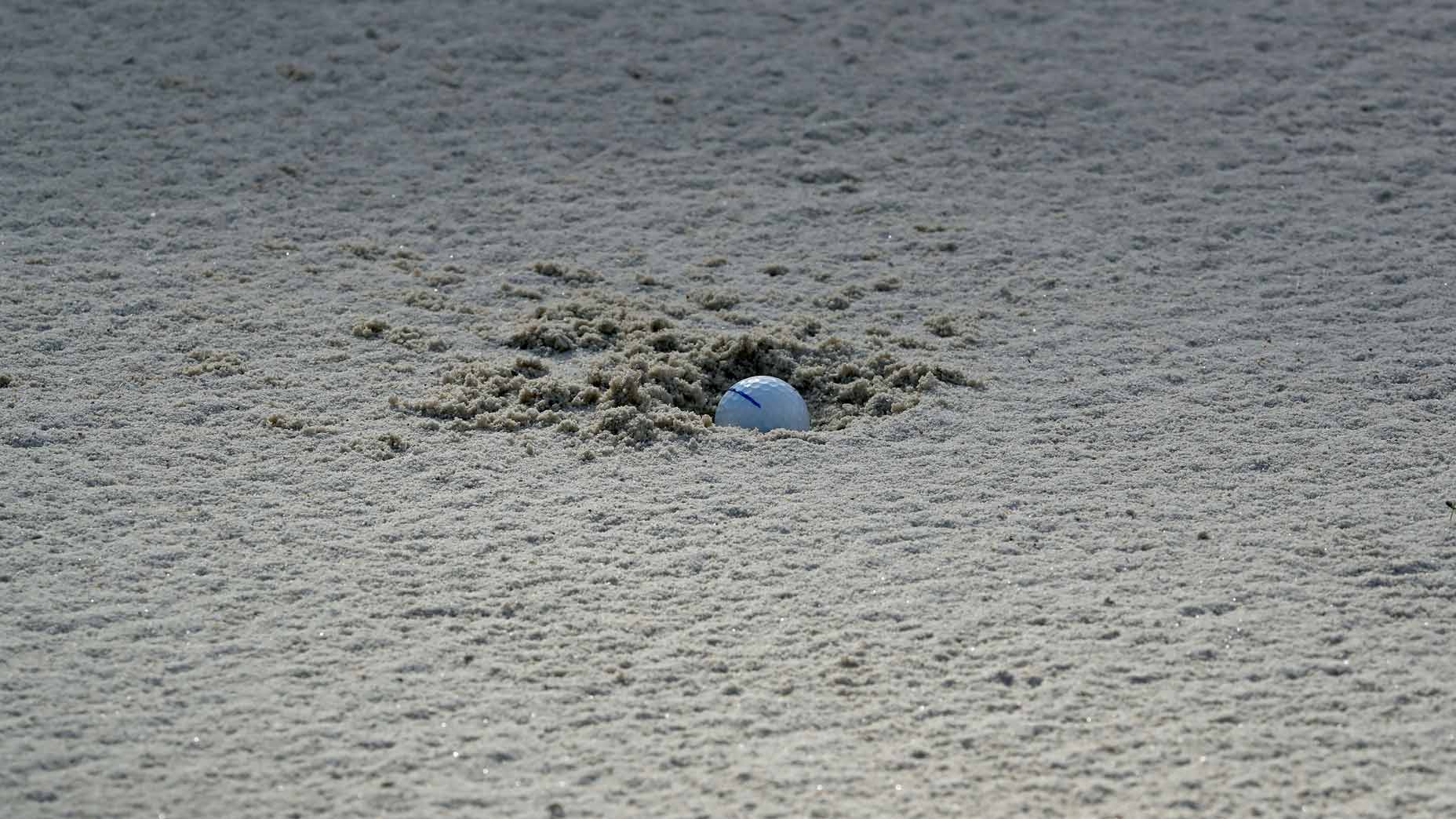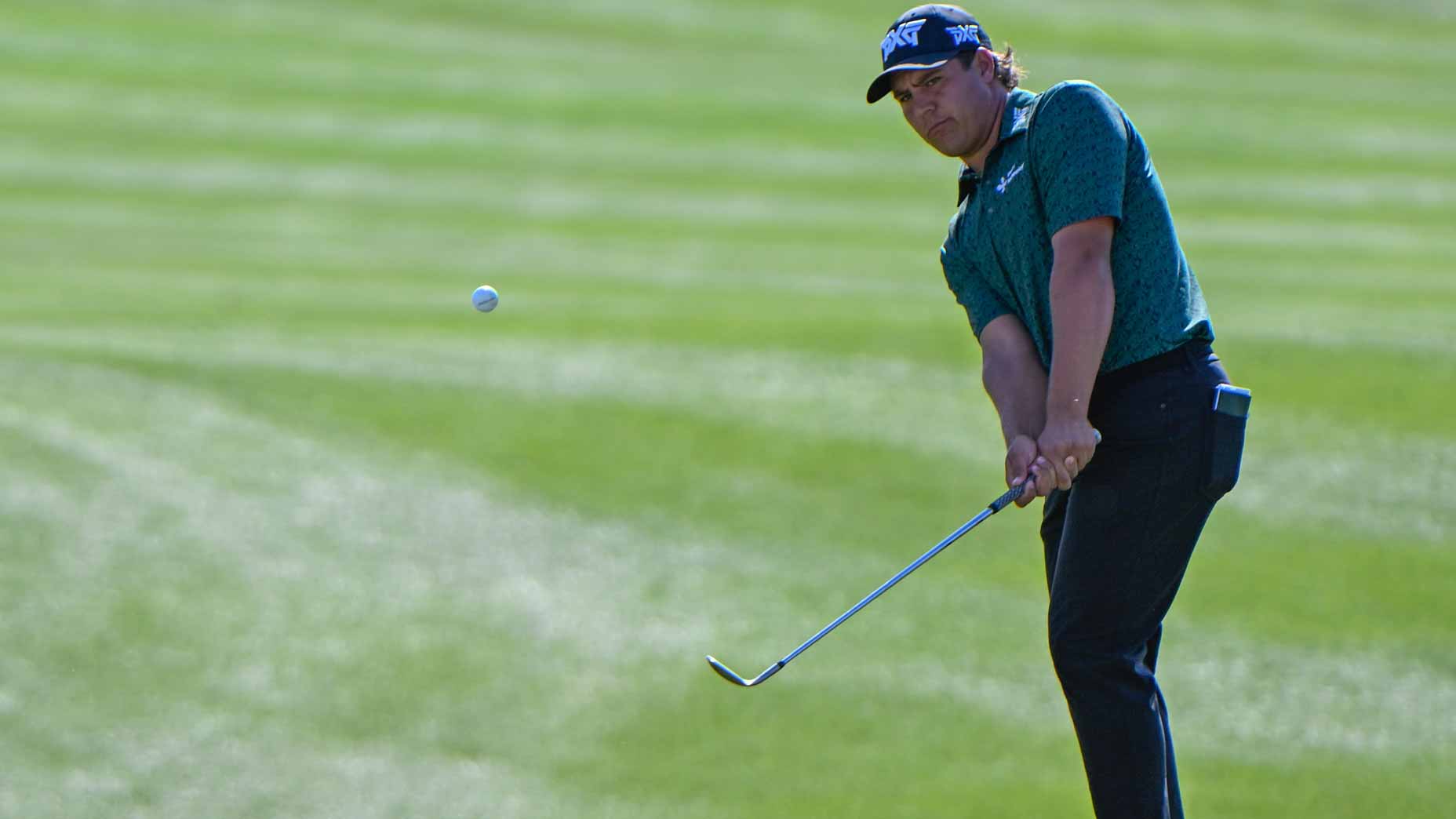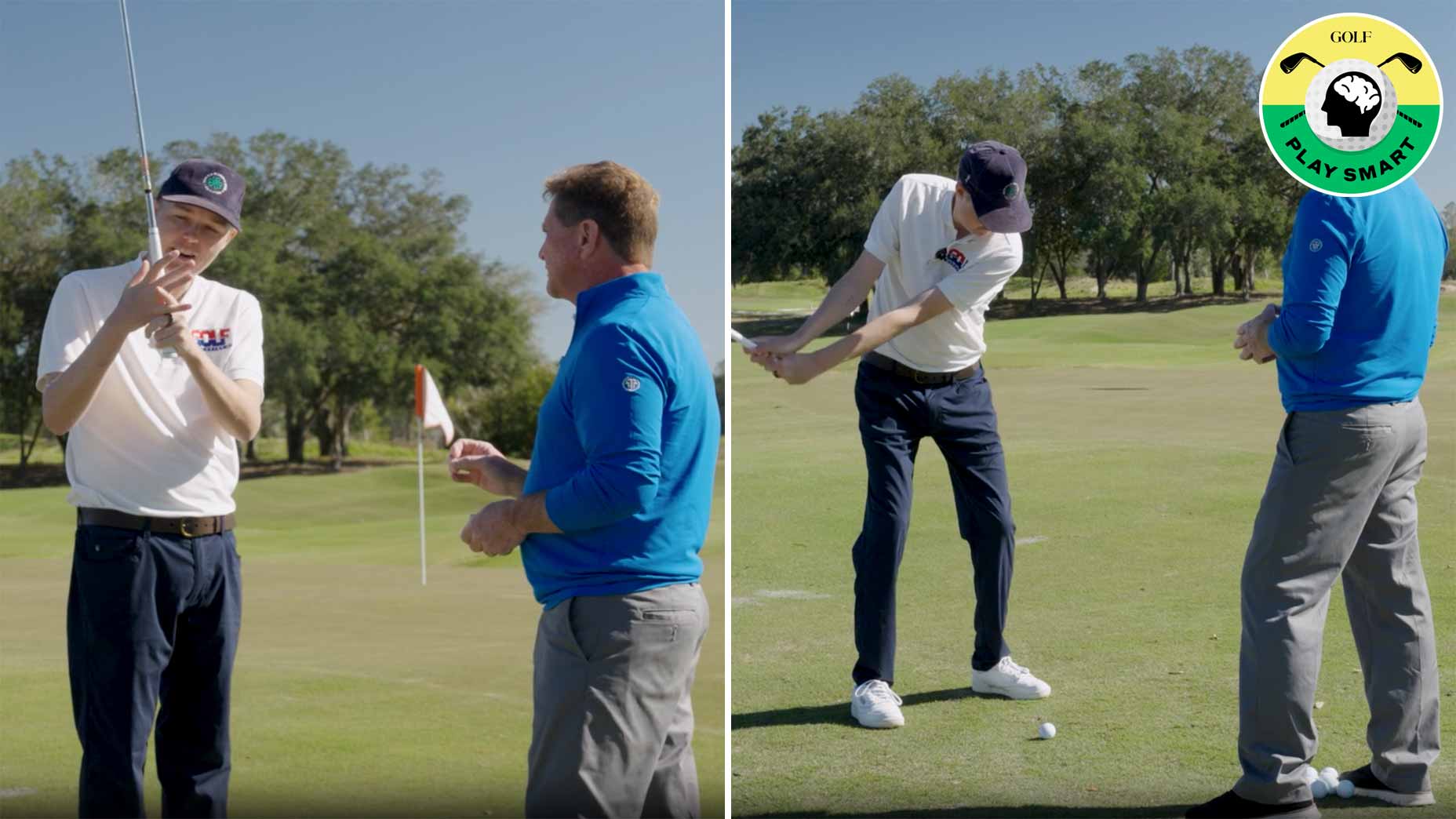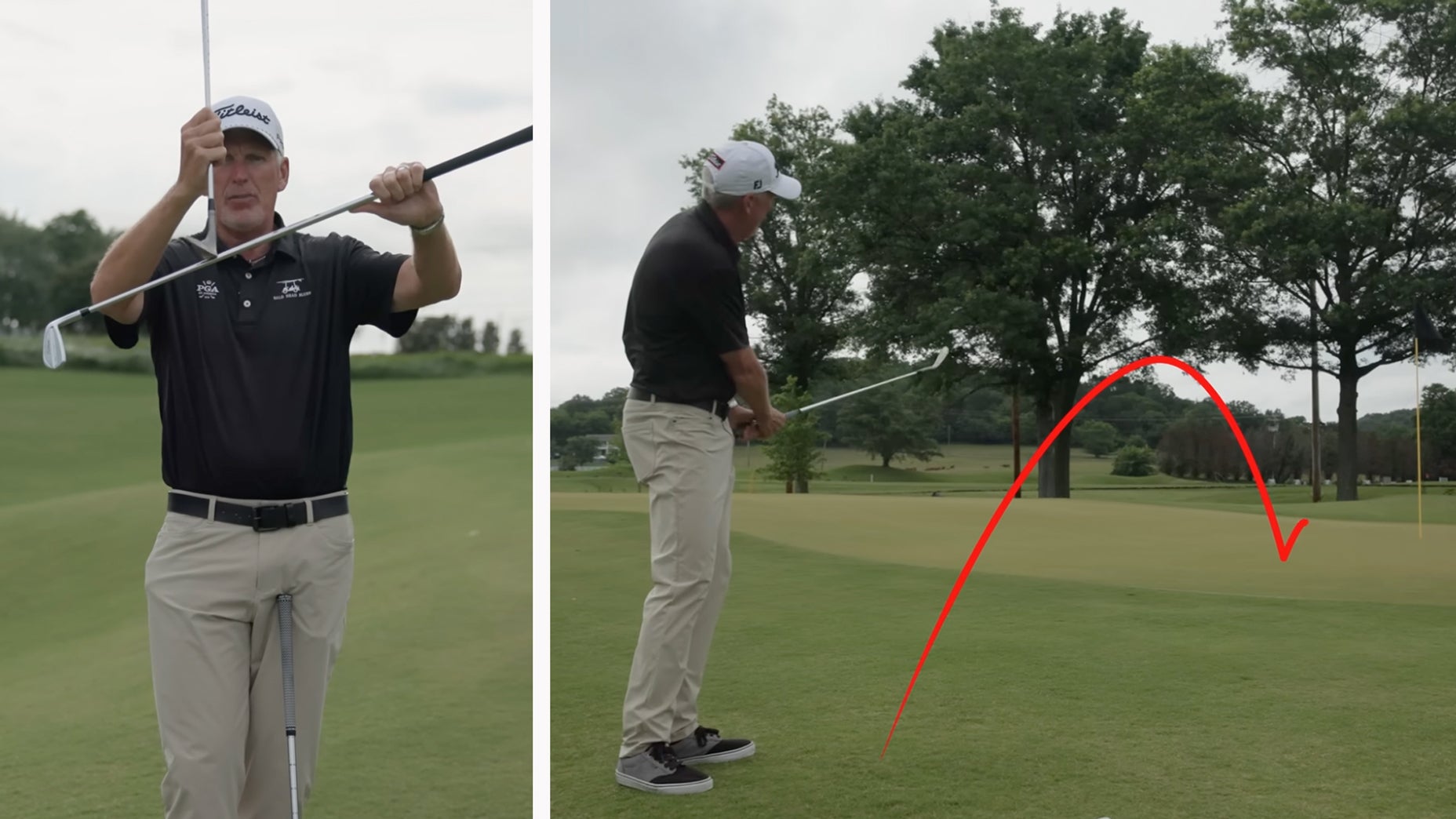What’s the best way to start off the new year? By perfecting that short game, of course.
Understanding the difference between chipping and pitching around the green is important and a key to recording lower scores. Here, I’m going to explain the best way to execute these crucial shots.
Chipping vs. pitching: Know the difference
A high shot (the pitch shot) and a low shot (the chip shot) are all you really need to understand how to execute. The difference between chipping and pitching is simple: chipping is like putting, except we use a club with very little loft. Try a 7-iron or even a hybrid for the low chip shot. Keep your wrists firm. Stroke the club like you would with your putter. Keep the club head low to the ground going back and also low coming through. Sweep the top of the turf with the bottom of the club. This will ensure that you hit the golf ball on the sweet spot. The putting stroke motion will ensure that the golf ball travels toward the target with a low trajectory.
As for the best times to chip?
As long as there is nothing between yourself and the flag, use the low-trajectory chip shot to send the ball, hopping and skipping toward the target. If you can’t putt your ball, then chip it.
Copy this teacher’s favorite lag-putting drill to lower your scoresBy: Josh Berhow
The pitch shot is quite different. Use a club with more loft, like your 60-degree lob wedge or your 54-degree sand wedge and get ready to hinge your wrists. The pitch shot is simply a mini version of your full swing. Play the ball in the center of your stance and grip the club with soft grip pressure. Swing the club back, using your wrists to hinge the shaft and your lead arm at a 90-degree angle. Remember to turn your body and also shift your weight (although in a small range of motion, this is a half-swing).
The key to good execution when pitching is to turn your body away from the target going back and continue to turn your body forward, toward the target, coming through. And finish the swing! Following through here is vital. A good, high finish will maintain your acceleration through the ball. Do not decelerate! The pitch shot will hit the ball high when you effortlessly sweep the turf under the ball and follow through.
Understanding high trajectory and low trajectory shots is vital when you need to make smart decisions around the green in order to save strokes on your scorecard.
I suggest chipping whenever you can and pitching only when you have to. A chip shot, just like putting, will be easiest to manage since the stroke is more compact, like your putting stroke. Chipping gets the job done more times than not.
The pitch shot is a higher risk and should only really be used when the player needs to get up and over an obstacle, like a bunker that guards the green. Also, pitching out of heavy rough is best because the loft on the club is designed to launch the ball up and out of deep grass. Just remember to turn going back, turn coming through and finish high.
Adam Smith is a GOLF Top 100 Teacher to Watch. He’s the head golf instructor at The Country Club of Virginia in Richmond, Va.











